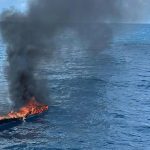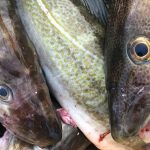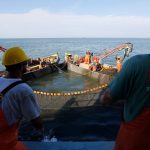MSC has conducted independent DNA tests on 240 random samples which shows that MSC certified fish continues to perform well in traceability tests. All of the samples showed that they came from the fish labelled on the pack and none of the products was mislabelled. This test easily establish the fraudulent use of ecolabels and as a result, the MSC plans to expand the testing of species later this year.
According to the information the first DNA tests were developed for three species: Alaska salmon (Oncorhynchus sp.), Alaska pollock (Theragra chalcogramma) and South Georgia toothfish (Dissostichus eleginoides). Scientists took reference samples of these three species from MSC certified fisheries and analysed their DNA profiles. In combination with product tracebacks, which, are also part of the MSC’s Traceability and Assurance in the Supply Chain (TASC) project, DNA tests help provide added assurance that only MSC-certified seafood is used in the final, labelled product.
Evi Mateboer, MSC supply chain manager, said that these tests are important for the future development of the sustainable fish market and those producers considering seeking MSC certification. Traceability is a very hot topic in the seafood industry: mislabelling is a recognised problem and undermines confidence in the supply chain. Evi also said that DNA analysis provides a positive identification of species, but it won’t, by itself, define that the product originates from a certified fishery.
Rupert Howes, MSC chief executive, opines that as the momentum behind the MSC programme increases and market demand for MSC-certified products grows, so too does the incentive for fraudulent use of the MSC ecolabel. DNA testing helps build public confidence in product sourcing and labelling claims.








